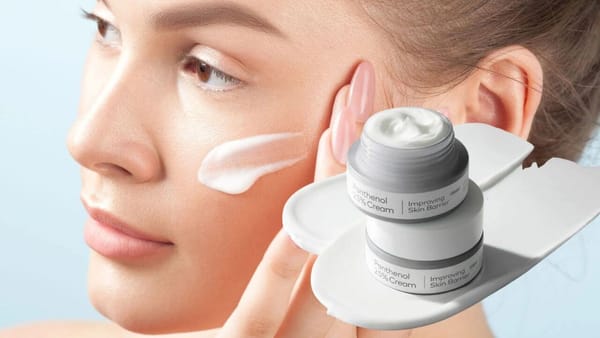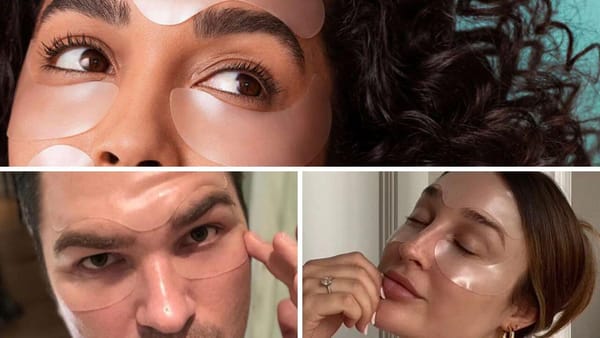Key Takeaways:
- Wedge pillows can significantly reduce snoring by promoting an optimal sleep position.
- These pillows are particularly beneficial for individuals with obstructive sleep apnea and acid reflux.
- Choosing the right wedge pillow can improve sleep quality and provide proper neck support.



Introduction
Snoring is a common issue that affects millions of people worldwide. It can disrupt sleep, cause daytime fatigue, and even strain relationships, leading to various health and social problems. For those who suffer from snoring or have a bed partner who does, the search for effective solutions to reduce or eliminate this nighttime disturbance is a priority.
Many people are on the lookout for effective solutions to reduce or eliminate snoring, exploring options from lifestyle changes to technological aids. One such solution that has gained popularity in recent years is the wedge pillow. This simple yet innovative sleep accessory promises to provide relief by altering the sleeper's position to improve airflow. But do wedge pillows help with snoring? This article delves into the science behind wedge pillows and their effectiveness in combating snoring, exploring how they might offer a peaceful night’s sleep for chronic snorers and their partners alike.
What is a Wedge Pillow? A wedge pillow is a triangular-shaped orthopedic pillow made from materials like foam or memory foam. It is designed to elevate the upper body during sleep, encouraging a more open air passage and reducing the likelihood of airway obstructions.
By understanding the dynamics of how wedge pillows function, individuals can make informed decisions about incorporating them into their sleep routines as a potential solution to snoring.
Understanding Snoring
Snoring occurs when the flow of air through the mouth and nose is partially obstructed during sleep. This obstruction causes the soft tissues in the throat to vibrate, producing the familiar snoring sound. Factors such as sleeping position, nasal congestion, and the anatomy of the mouth and throat can contribute to snoring.
Sleeping on your back can cause the tongue to fall backward into the throat, narrowing the airway and increasing the likelihood of snoring. Nasal congestion from allergies or colds may also restrict airflow. Additionally, having a thick or long soft palate can narrow the opening from the nose to the throat, amplifying the vibrations and resulting in louder snoring. Lifestyle choices such as alcohol consumption or being overweight can further exacerbate this condition by relaxing throat muscles or increasing tissue around the neck, respectively. Understanding these elements can help in addressing and reducing snoring effectively.
The Role of Sleeping Position
Sleeping position plays a crucial role in snoring and overall sleep quality. Back sleepers are more likely to snore because gravity causes the tongue and soft tissues to relax and collapse towards the back of the throat, obstructing the airway. This obstruction can result in vibrations that produce the sound of snoring, disrupting both the snorer's sleep and that of their partner. On the other hand, side and stomach sleepers are less likely to snore because these positions help keep the airway open, allowing for smoother airflow. Side sleeping, in particular, is often recommended by sleep specialists as it encourages optimal breathing and can reduce the frequency and intensity of snoring. Additionally, using supportive pillows can help maintain these positions throughout the night, further decreasing the likelihood of airway obstruction.



What is a Wedge Pillow?
A wedge pillow, also known as an anti snoring pillow, is a triangular-shaped pillow specifically engineered to elevate the upper body while sleeping or resting. Typically constructed from memory foam or other supportive materials, wedge pillows are available in various heights and angles to suit individual preferences and needs. They are often utilized to alleviate conditions such as acid reflux, where elevation can prevent stomach acid from traveling back into the esophagus. Additionally, the anti-snore pillows, provide relief for individuals suffering from sleep apnea and snoring by promoting an open airway, thereby improving breathing during sleep. Wedge pillows can also be beneficial for people with certain back or neck issues, offering extra support and comfort./
How Wedge Pillows Work
Wedge pillows are specially designed to elevate the upper body during sleep, playing a crucial role in enhancing overall sleep quality. By raising the head and shoulders, these pillows help maintain an open airway, significantly reducing the likelihood of snoring and sleep apnea symptoms. This elevation promotes an optimal sleep position by preventing the tongue and soft tissues from collapsing towards the back of the throat, which can obstruct breathing. In addition to these benefits, the lifted position aids in reducing nasal congestion by allowing sinus passages to drain more effectively, ultimately improving breathing throughout the night. Moreover, wedge pillows can provide relief from acid reflux by keeping stomach acids from rising into the esophagus, ensuring a more comfortable and restful sleep experience.

3Pcs Orthopedic Bed Wedge Pillow Set
Adjustable 10-in-1 Design | Removable Cover | Memory Foam
Benefits of Wedge Pillows for Snoring
Wedge pillows offer several benefits for individuals who snore, particularly by improving sleep quality and overall health. These pillows are designed with an inclined shape that provides proper neck support, helping to maintain spinal alignment and significantly reducing strain on the neck and shoulders. By keeping the upper body elevated, wedge pillows also promote better airflow, which can be particularly beneficial for those with nasal congestion or obstructive sleep apnea.
Moreover, the elevation can help reduce acid reflux, a common trigger for snoring, by preventing stomach acid from traveling back into the esophagus. This not only decreases the likelihood of snoring but also enhances comfort throughout the night. For individuals looking to improve their sleep and reduce snoring, investing in a wedge pillow can be a beneficial step forward in achieving restful and uninterrupted sleep.
Wedge Pillows and Obstructive Sleep Apnea
Obstructive sleep apnea (OSA) is a serious condition where the airway becomes completely blocked during sleep, causing the individual to temporarily stop breathing. Wedge pillows can be particularly beneficial for individuals with OSA, as they help keep the airway open and reduce the frequency of apnea episodes.
Choosing the Right Wedge Pillow
When selecting a wedge pillow, it's important to consider factors such as pillow loft, material, and angle. A higher loft may provide more elevation, but it may not be comfortable for everyone. Memory foam is a popular choice for its supportive and contouring properties. The angle of the pillow should be chosen based on individual preferences and needs.
Pillow Loft and Snoring
Pillow loft refers to the height and firmness of a pillow. A higher loft can provide more elevation and support, which can help reduce snoring. However, it's important to find a balance between elevation and comfort, as a pillow that is too high may cause neck strain.
Memory Foam Wedge Pillows
Memory foam wedge pillows are a popular choice for their supportive and contouring properties. Memory foam conforms to the shape of the head and neck, providing customized support and helping to maintain proper spinal alignment. This can help reduce snoring and improve sleep quality.



Positional Therapy and Snoring
Positional therapy involves using devices or techniques to encourage sleeping in a position that reduces snoring. Wedge pillows are a form of positional therapy, as they promote sleeping on an incline, which can help keep the airway open and reduce snoring.
An Alternative Pillow for Snoring
In addition to wedge pillows, there are other types of pillows designed to reduce snoring. Anti-snoring pillows, for example, are designed to provide proper neck support and encourage side sleeping. Body pillows can also be used to promote side sleeping and reduce snoring.
The Importance of Proper Neck Support
Proper neck support is essential for maintaining spinal alignment and reducing strain on the neck and shoulders. A pillow that provides adequate support can help reduce snoring by keeping the airway open and preventing the tongue and soft tissues from collapsing to the back of the throat.
The Role of Nasal Congestion
Nasal congestion can contribute to snoring by making it difficult to breathe through the nose. Elevating the upper body with a wedge pillow can help reduce nasal congestion and improve breathing, which can help reduce snoring.
The Impact of Acid Reflux on Snoring
Acid reflux is a common trigger for snoring. When stomach acid flows back into the esophagus, it can cause irritation and inflammation, which can obstruct the airway and lead to snoring. Elevating the upper body with a wedge pillow can help reduce acid reflux and alleviate snoring.
The Benefits of Side Sleeping
Side sleeping is one of the best positions for reducing snoring. This position helps keep the airway open and prevents the tongue and soft tissues from collapsing to the back of the throat. Wedge pillows can encourage side sleeping by providing support and elevation.
The Drawbacks of Sleeping Flat
Sleeping flat on the back can increase the likelihood of snoring. In this position, gravity causes the tongue and soft tissues to collapse to the back of the throat, obstructing the airway. Elevating the upper body with a wedge pillow can help prevent this and reduce snoring.
The Role of Pillow Design
The design of a pillow can significantly impact its effectiveness in reducing snoring. Wedge pillows are specifically designed to elevate the upper body and promote an optimal sleep position. Other anti-snoring pillows may have features such as contoured shapes or adjustable lofts to provide customized support.



The Importance of Pillow Material
The material of a pillow can affect its comfort and support. Memory foam is a popular choice for its contouring properties, while other materials such as latex or down may offer different levels of support and comfort. It's important to choose a pillow material that meets individual preferences and needs.
The Benefits of Adjustable Beds
Adjustable beds allow for customizable elevation of the upper body, which can help reduce snoring. These beds can be adjusted to different angles, providing personalized support and comfort. Wedge pillows can be used in conjunction with adjustable beds for added elevation and support.
The Role of Pillow Covers
Pillow covers can impact the comfort and hygiene of a pillow. Cotton covers are breathable and soft, while copper-infused covers may offer additional benefits such as antimicrobial properties. It's important to choose a pillow cover that meets individual preferences and needs.
The Importance of Machine Washable Pillows
Machine washable pillows are convenient and easy to maintain. Regular washing can help keep pillows clean and free of allergens, which can improve sleep quality and reduce snoring. It's important to follow the manufacturer's care instructions to ensure the longevity of the pillow.
The Benefits of Proper Spinal Alignment
Proper spinal alignment is essential for reducing strain on the neck and shoulders and maintaining overall health. A pillow that provides adequate support can help maintain spinal alignment and reduce snoring by keeping the airway open.
The Role of Nasal Strips
Nasal strips can help reduce snoring by opening up the nasal passages and improving airflow. These strips can be used in conjunction with wedge pillows to provide additional support and reduce snoring.
The Impact of Sleep Quality on Snoring
Poor sleep quality can contribute to snoring by causing fatigue and muscle relaxation. Improving sleep, quality through sleep medicine practices, the use of a supportive pillow, and proper sleep hygiene can help reduce snoring and improve overall health.
The Benefits of a Good Night's Sleep
A good night's sleep is essential for overall health and well-being. Reducing snoring with a supportive pillow can improve sleep quality and help individuals wake up feeling refreshed and energized.
The Role of Stomach Sleepers
Stomach sleepers are less likely to snore because this position helps keep the airway open. However, sleeping on the stomach can cause strain on the neck and back. Wedge pillows can provide support and elevation for stomach sleepers to reduce strain and improve comfort.



The Benefits of Side and Back Sleepers
Side and back sleepers can benefit from wedge pillows, as these pillows help keep the airway open and reduce snoring. Side sleeping is particularly effective for reducing snoring, while back sleeping with elevation can also help keep the airway open.
The Importance of Pillow Preferences
Pillow preferences vary from person to person. It's important to choose a pillow that meets individual needs and preferences for comfort and support. Wedge pillows come in various heights and materials, allowing for customization and personalization.
The Role of Extra Pillows
Extra pillows can be used to provide additional support and elevation. For example, placing a pillow under the knees can help reduce strain on the lower back, while using a body pillow can promote side sleeping and reduce snoring.
The Benefits of Proper Neck Support
Proper neck support is essential for maintaining spinal alignment and reducing strain on the neck and shoulders. A pillow that provides adequate support can help reduce snoring by keeping the airway open and preventing the tongue and soft tissues from collapsing to the back of the throat.
The Role of Nasal Congestion
Nasal congestion can contribute to snoring by making it difficult to breathe through the nose. Elevating the upper body with a wedge pillow can help reduce nasal congestion and improve breathing, which can help reduce snoring.
The Impact of Acid Reflux on Snoring
Acid reflux is a common trigger for snoring. When stomach acid flows back into the esophagus, it can cause irritation and inflammation, which can obstruct the airway and lead to snoring. Elevating the upper body with a wedge pillow can help reduce acid reflux and alleviate snoring.
The Benefits of Side Sleeping
Side sleeping is one of the best positions for reducing snoring. This position helps keep the airway open and prevents the tongue and soft tissues from collapsing to the back of the throat. Wedge pillows can encourage side sleeping by providing support and elevation.
The Drawbacks of Sleeping Flat
Sleeping flat on the back can increase the likelihood of snoring. In this position, gravity causes the tongue and soft tissues to collapse to the back of the throat, obstructing the airway. Elevating the upper body with a wedge pillow can help prevent this and reduce snoring.
The Role of Pillow Design
The design of a pillow can significantly impact its effectiveness in reducing snoring. Wedge pillows are specifically designed to elevate the upper body and promote an optimal sleep position. Other anti-snoring pillows may have features such as contoured shapes or adjustable lofts to provide customized support.
The Importance of Pillow Material
The material of a pillow can affect its comfort and support. Memory foam is a popular choice for its contouring properties, while other materials such as latex or down may offer different levels of support and comfort. It's important to choose a pillow material that meets individual preferences and needs.
The Benefits of Adjustable Beds
Adjustable beds allow for customizable elevation of the upper body, which can help reduce snoring. These beds can be adjusted to different angles, providing personalized support and comfort. Wedge pillows can be used in conjunction with adjustable beds for added elevation and support.



The Role of Pillow Covers
Pillow covers can impact the comfort and hygiene of a pillow. Cotton covers are breathable and soft, while copper-infused covers may offer additional benefits such as antimicrobial properties. It's important to choose a pillow cover that meets individual preferences and needs.
The Importance of Machine Washable Pillows
Machine washable pillows are convenient and easy to maintain. Regular washing can help keep pillows clean and free of allergens, which can improve sleep quality and reduce snoring. It's important to follow the manufacturer's care instructions to ensure the longevity of the pillow.
The Benefits of Proper Spinal Alignment
Proper spinal alignment is essential for reducing strain on the neck and shoulders and maintaining overall health. A pillow that provides adequate support can help maintain spinal alignment and reduce snoring by keeping the airway open.
The Role of Nasal Strips
Nasal strips can help reduce snoring by opening up the nasal passages and improving airflow. These strips can be used in conjunction with wedge pillows to provide additional support and reduce snoring.
The Impact of Sleep Quality on Snoring
Poor sleep quality can contribute to snoring by causing fatigue and muscle relaxation. Improving sleep quality with a supportive pillow and proper sleep hygiene can help reduce snoring and improve overall health.

Kӧlbs Bed Wedge Pillow with Memory Foam Top
Removable Chic Jacquard Cover | Machine Washable
The Benefits of a Good Night's Sleep
A good night's sleep is essential for overall health and well-being. Reducing snoring with a supportive pillow can improve sleep quality and help individuals wake up feeling refreshed and energized.
The Role of Stomach Sleepers
Stomach sleepers are less likely to snore because this position helps keep the airway open. However, sleeping on the stomach can cause strain on the neck and back. Wedge pillows can provide support and elevation for stomach sleepers to reduce strain and improve comfort.
The Benefits of Side and Back Sleepers
Side and back sleepers can benefit from wedge pillows, as these pillows help keep the airway open and reduce snoring. Side sleeping is particularly effective for reducing snoring, while back sleeping with elevation can also help keep the airway open.
The Importance of Pillow Preferences
Pillow preferences vary from person to person. It's important to choose a pillow that meets individual needs and preferences for comfort and support. Wedge pillows come in various heights and materials, allowing for customization and personalization.
The Role of Extra Pillows
Extra pillows can be used to provide additional support and elevation. For example, placing a pillow under the knees can help reduce strain on the lower back, while using a body pillow can promote side sleeping and reduce snoring.



Summary
Wedge pillows can be a valuable tool in reducing snoring and improving overall sleep quality. By elevating the upper body, these pillows promote an optimal sleep position that helps keep the airway open, thereby reducing the likelihood of snoring. This elevation can also alleviate pressure on the airway, making it easier to breathe during the night. Wedge pillows are particularly beneficial for individuals who suffer from conditions such as obstructive sleep apnea and acid reflux, as they can help decrease the frequency of episodes by preventing the backflow of stomach acid and easing breathing difficulties.
When choosing the right wedge pillow, it's important to consider various factors such as pillow loft, material, and angle. The loft or height of the pillow can affect the degree of elevation and comfort, with some preferring a gradual incline or thinner pillow, while others may need a steeper angle for maximum effectiveness. The material of the pillow can also contribute to comfort and support, with options ranging from memory foam to more traditional polyester fills. Selecting the correct angle is crucial, as it can significantly influence the ability to maintain an open airway and achieve a good night's sleep. Overall, a well-chosen wedge pillow can make a substantial difference in enhancing sleep quality and reducing sleep disturbances.
FAQ
Do wedge pillows help with sleep apnea?
Yes, wedge pillows can help with obstructive sleep apnea by elevating the upper body and keeping the airway open, reducing the frequency of apnea episodes.
Can wedge pillows reduce acid reflux?
Yes, wedge pillows can help reduce acid reflux by elevating the upper body, preventing stomach acid from flowing back into the esophagus.
Are memory foam wedge pillows better for snoring?
Memory foam wedge pillows are popular for their supportive and contouring properties, which can help maintain proper spinal alignment and reduce snoring.

















